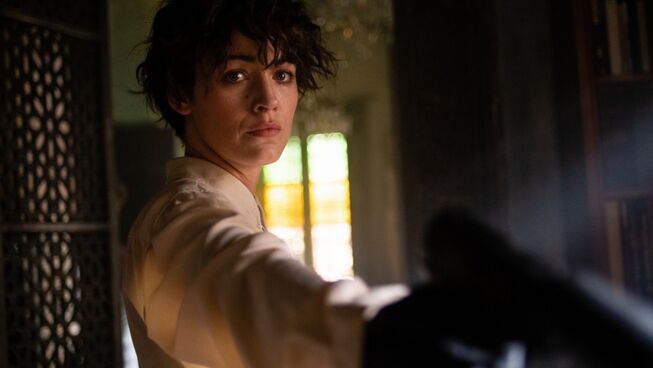
3.5 out of 5 stars
Coming of age films are not new to the cinematic landscape, but Hollywood manages to propagate a new batch for each generation. Every once and a while, one stands out from the rest. From Rebel Without a Cause to Say Anything to Breakfast Club, this genre has provided positive memories and the lines that resonate throughout our younger years. Paper Towns and author John Green have struck this cord and provide a voice for this generation. The high school journey of Quentin (Nat Wolff) and his mysterious neighbour Margo (Cara Delevingne) is an adaptation of the Green novel. Quentin and Margo are friends throughout their childhood but have grown apart over the years. Then on a fateful night during their last year of high school, Margo asks Quentin for his help on a mission of revenge against friends who have done her wrong. The midnight escapade becomes a life-changing event for Quentin and he begins to pine after Margo again, then she mysteriously disappears. Family and friends want to know where she went and the mystery deepens as Quentin finds clues about her whereabouts that Margo left behind. He recruits his band of friends to take the road trip of a life time to find this teenage runaway. Throughout the life-transitory road trip, Quentin finds out more about himself, his relationships with his friends and what to do with his misplaced love of the mysterious Margo.
Throughout the opening moments of Paper Towns it feels like it was going down the predictable coming of age narrative. Boy meets girl, girl lives across the street, girl lives an adventurous life and boy pines after her from a distance. Quickly, director Jake Schreier (Robot and Frank) pulls the story out of the hormonal malaise and into the kaleidoscope of different expectations. His lead characters provide an unexpected depth. Nat Wolff and Cara Delevingne were perfectly cast in this teen mystery. Wolff proves to have a John Cusack (Say Anything) quality that makes him appealing as the average boy that proves cool in the end, while Delevingne provides enough smouldering excitement to make her worth this young man's pursuit. They are surrounded by a wonderful cast of characters that compliment the comedic dialogue and the contemplative moments of the script. This is where the film differentiates itself within this genre. Even within the stereotypical trappings of the party scene, suggested teen sex and proverbial geek trio, the writing lifts the story line out of the post-pubescent mire. It may seem unrealistic to think that teens could speak at the depth that they do in Paper Towns, but the characters make these lines plausible and accessible. There is a maturity with a twist of hormonal angst that gives this story the necessary edge it needs. Also, the conclusion adds the unique twist that provides a surprising satisfaction to the adventure.
In the realm of teen dramas, Paper Towns does provide a new perspective on a generation, but if there are any difficulties with the film it was in the lack of parental involvement. In the typical American high-school scenarios, the lack of representation by the parents in the film does leave a hole in the narrative. The only people who seem to speak into the lives of these kids are other kids. This might be an insight on the lives of families today or a warning signal for parents to get more involved in the lives of their children. Regardless of the message that is trying to convey, the lack of any adult wisdom does leave a void in this engaging script. Paper Towns is an entertaining film that provides an opportunity for parental dialogue with their teens on many of the transitional issues of their lives.
Reel Dialogue: What are the bigger questions to consider from this film?
- What is sacrificial love? (John 15:13, Ephesians 5:25)
- Is life mysterious? (Colossians 2:1-3, Matthew 13:11-13)
- Does God care about my dreams? (Jeremiah 29:11, Proverbs 16:3)








